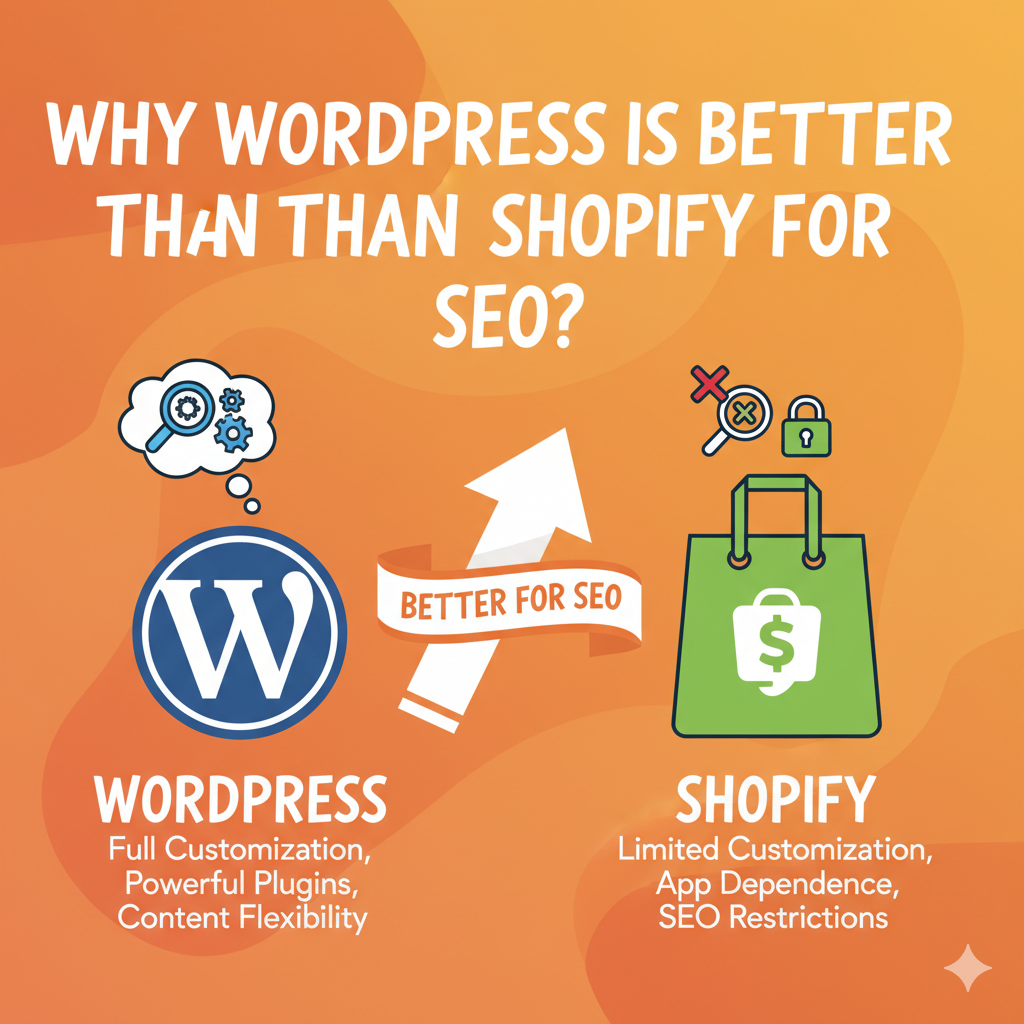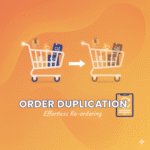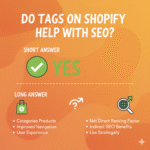If you’ve been trying to decide between WordPress and Shopify for your online business, one major factor that probably comes up is SEO (Search Engine Optimization). Both are popular platforms Shopify is known for its ease of use, while WordPress gives you a ton of flexibility.
But when it comes to SEO, WordPress simply has the upper hand. In this article, I’ll break down the reasons why WordPress is better than Shopify for SEO in a practical perspectives implemented by me during my workflow.
What Makes SEO So Important?
SEO is what helps your website show up when people search on Google. If your site ranks higher, you get more visitors, leads, and sales without paying for ads.
That’s why the platform you choose plays a big role in how well your site can be optimized.
10 Reasons Why WordPress Works Better Than Shopify In SEO
1. Complete Control Over SEO Settings
WordPress gives you total control over every SEO element from meta titles and descriptions to schema markup and redirects.
With plugins like Yoast SEO or Rank Math, you can easily manage how your pages appear on Google. You can tweak everything — even advanced features like robots.txt and canonical URLs.
Shopify, on the other hand, has restrictions. For instance, you can’t freely change URL structures, and some technical SEO elements are locked behind Shopify’s system.
If you like flexibility, WordPress wins here hands down.
2. Flexible URL Structure
Search engines prefer clean, keyword-rich URLs. WordPress lets you customize URLs exactly how you want.
Example:
✅ yourstore.com/best-wireless-earbuds
Shopify automatically adds folder structures like /collections/ or /products/, which make URLs longer and less clean:
❌ yourstore.com/collections/best-wireless-earbuds
That small detail can make a difference in how search engines interpret your site’s structure.
3. Better Content Marketing Capabilities
If you plan to grow through content marketing (like blogs or guides), WordPress is unbeatable. It was built as a blogging platform first.
You can:
- Create SEO-optimized blog posts easily
- Add internal links naturally
- Use custom categories and tags for better organization
While Shopify supports blogs, it’s pretty basic — no advanced formatting, limited plugins, and fewer customization options. For a content-driven SEO strategy, WordPress is clearly stronger.
4. More SEO Plugins and Tools
WordPress has thousands of SEO plugins that make optimization easy — from image compression tools to broken link checkers.
Some popular ones include:
- Yoast SEO (for on-page SEO)
- Rank Math (for advanced SEO analysis)
- WP Rocket (for speed optimization)
- Smush (for image compression)
Shopify apps can help with SEO too, but most come with monthly fees and limited flexibility. WordPress plugins, in contrast, are often free or one-time purchases.
5. Better Site Speed Optimization
Site speed is a ranking factor, and WordPress gives you more ways to optimize it.
You can:
- Choose lightweight themes
- Use caching plugins
- Compress images and code
- Host your site on fast servers
Shopify’s hosting is managed and stable, but you can’t control backend performance tweaks or caching methods. That makes WordPress a better choice if you want to fine-tune your site for top performance.
6. Full Control Over Technical SEO
Want to manage structured data, hreflang tags, or XML sitemaps? WordPress lets you handle it all.
You can even edit your robots.txt or .htaccess file to guide search engines exactly how you want. Shopify limits access to these kinds of files, which can be frustrating if you want complete control over your technical SEO.
7. Cheaper and More Scalable in the Long Run
Shopify charges for many SEO-related apps and advanced features. On WordPress, most tools are open-source or have affordable lifetime options.
So, as your site grows, you can scale your SEO strategy without worrying about extra app costs every month.
8. Open-Source Freedom
Because WordPress is open-source, developers and SEO experts can build whatever they want on top of it. You’re not limited by what a company allows — you’re free to implement custom SEO strategies, use different hosting providers, and modify your site deeply.
That kind of freedom is a big deal when competing for higher rankings.
9. Easier Integration with SEO Analytics Tools
Integrating tools like Google Analytics, Google Search Console, and Schema.org markup generators is straightforward on WordPress.
You can install them directly or through plugins — no need to go through Shopify’s app store limitations.
This makes tracking performance, fixing issues, and improving rankings much simpler.
10. Content Ownership and Portability
With WordPress, you own everything — your data, your SEO work, and your site files.
On Shopify, if you ever decide to move, migrating your SEO settings, URLs, and metadata can be tricky. WordPress makes migration seamless, so you’ll never lose your SEO progress.
Final Thoughts
Shopify is great for ease of setup and managing e-commerce, but when it comes to SEO power, flexibility, and long-term control WordPress clearly takes the lead.
If SEO is a big part of your growth plan, WordPress gives you the freedom and tools to optimize your site exactly the way you want.
Key Takeaways
- WordPress offers more SEO control and customization.
- You can manage URLs, metadata, and technical SEO freely.
- Its plugins make optimization easy and affordable.
- It’s ideal for content-driven SEO strategies.
FAQs
Yes, WordPress is generally better than Shopify for SEO. It gives you full control over every part of your optimization — from URLs, meta titles, and descriptions to page speed and structured data. With plugins like Yoast SEO and Rank Math, you can handle everything from keyword optimization to advanced schema settings. Shopify does offer basic SEO tools, but it limits how much you can customize, especially on the technical side.
If SEO is a top priority, WordPress simply gives you more freedom and flexibility to rank better in search results.
For pure SEO flexibility, WordPress (with WooCommerce) is the best e-commerce platform. It’s open-source, meaning you can optimize your site however you like — from site speed tweaks to URL structures and content optimization.
Shopify is good for beginners who want a simple setup, but it can’t match WordPress when it comes to technical SEO control and long-term growth potential.
Absolutely SEO is always worth it, even on Shopify. While Shopify has some limits, you can still optimize your product pages, use relevant keywords, improve site speed, and build backlinks to drive organic traffic.
However, if you want advanced control or plan to rely heavily on SEO-driven growth, WordPress might be a better long-term investment. Shopify’s simplicity is great for running your store easily, but WordPress helps you own your SEO strategy completely.
Yes, WordPress sites are better for SEO because they’re built with flexibility in mind. You can control how search engines crawl your site, optimize every detail, and use plugins to handle technical SEO without coding.
From clean URLs and mobile optimization to lightning-fast performance tuning — WordPress makes it easy to go deep with your SEO efforts. That’s why many SEO professionals and content creators prefer WordPress over other platforms.
In most cases, Shopify is more expensive than WordPress, especially as your store grows.
Shopify charges a monthly subscription (starting around $39/month for the basic plan) plus transaction fees unless you use Shopify Payments. Many of the useful SEO and marketing apps also cost extra each month.
WordPress itself is free, but you’ll need to pay for hosting, a domain, and maybe a few premium plugins or themes. The difference is — you get to choose your costs. You can scale your setup according to your budget, and most SEO tools for WordPress are either free or one-time purchases.
So, while Shopify is easier to start with, WordPress usually turns out to be more cost-effective and flexible in the long run.
Shopify has some solid SEO tools and apps, but the best ones depend on your specific needs. Here are a few top-rated options:
Plug in SEO – Great for checking SEO issues and fixing errors quickly.
Smart SEO – Helps with structured data, meta tags, and image alt text automation.
TinyIMG – Optimizes your images for faster loading speeds.
Yoast SEO for Shopify – A newer option from the popular WordPress plugin, made for Shopify users to manage metadata and readability.
While these tools can definitely improve your Shopify SEO, they often come with monthly costs. In contrast, WordPress gives you more control and more powerful SEO plugins for free or at a much lower cost.


